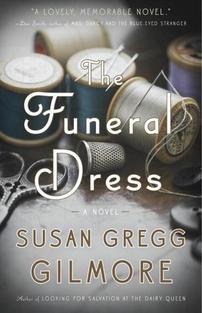YOU CAN PAY TO GO ABROAD...
It will typically cost you thousands (on top of regular tuition) to study overseas. You can pay out of pocket by getting a job and saving up, but I would suggest you do NOT take out a loan to cover your trip. It's just not an essential expense and student loans are difficult enough to pay off.
If you believe your only option is to pay your own way, consider going for shorter terms through summer learning or Winter Break opportunities, when tuition will be less expensive overall.
OR - YOU CAN GET PAID TO STUDY ABROAD
Institutional Funding
Seek institutional funding through your university and/or relevant department. Typically, you need to meet three criteria:
- Display a real academic need to travel to a certain place, whether for a research project or career objective.
- Demonstrate some kind of institutional support while abroad, through a local school, organization, or exchange program.
- Have clearly defined objectives for your trip, as well as a plan for how you will accomplish them AND a back-up plan in case your original idea does not pan out.
Check with professors if your program offers scholarships and grants for students to go abroad. My first trip to Russia was sponsored by the University of Notre Dame's Nanovic Institute for European Studies.
Harvard sent me to Honolulu for a month to complete research in the University of Hawaii's library.
In exchange for funding for both, I had to produce a final paper and a report of expenditures upon my return. Easy and totally worth it.
Fulbright Award (Or Similar)
The Fulbright U.S. Student Program is one of the best options for graduate students looking to complete field work in their discipline. There are grants available for those who want to teach English in their destination country, while working on their own research, and awards for research alone.
If you want to apply for a Fulbright, find a scholar to mentor you through the process. In 2007 one of my professors took it upon himself to read my essay drafts, look over my application, and administered my language exam.
Two Points:
- Be strategic with your recommendations. It's not fair, but the committee will typically want to see letters from full professors, not lecturers, adjunct faculty, or entry-level instructors.
- Make sure your project is incredibly specific but with broad relevance. (Easy, right?)
For example, I received a Fulbright Award in 2008 to the Republic of Georgia, where I was going to study the repatriation efforts of a small minority group, the Meskhetian Turks, who Stalin had deported to Central Asia in the 1940s.
I realize 99.9% of people who read that ^ think some variation of, "What? Why? What does that even mean?"
But the broader relevance was there in terms of Georgia's national identity and redefining itself vis-a-vis Russia in the Post-Soviet world.
In other words, you want your project to be just weird enough to get noticed, but with obvious practical applications.
The Japan Exchange and Teaching Program (JET)
JET has been around for almost 30 years now, and is sponsored by the Japanese Ministry of Foreign Affairs. Participants are recruited to either teach English in local schools, collaborate with local international relations groups, or serve as Sports Exchange Advisors.
Yes, they pay people to come in and coach. However, SEA's have to be recommended by the country's National Olympic Committee or a governmental organization, so two year's on your high school's club rugby team do not make you eligible.
90% of JET's participants work as language teachers, and need to demonstrate a commitment to teaching students while developing an appreciation for Japanese culture and language.
JET's participants receive airfare, a salary, and health insurance. Although you pay for your own housing, your host institution will typically assist you in finding a reasonable place to live prior to your arrival.
JET has a good reputation for taking excellent care of its participants, so this a good option for those who want a year-long immersion experience with a strong safety net.
American Councils for International Education
Founded in 1974, American Councils provides research, language-learning, and cultural exchange opportunities for those interested in working in Eurasia and Southeast Europe.
Similar to the Fulbright, American Councils' research awards are extremely competitive, and students planning on applying would do well to seek the mentorship of a qualified scholar in their field of study.
American Councils emphasizes using research, language, and cultural exchange as a means of strengthening relations between the former Soviet republics and the United States, so be prepared to make a case for how your project will contribute to an international dialogue among scholars.
Critical Language Scholarship Program
The Critical Language Scholarship Program (CLS) has 13 fully-funded summer language-learning institutes in: Chinese, Japanese, Korean, Russian, Arabic, Persian, Azerbaijani, Bangla, Hindi, Indonesian, Punjabi, Turkish, and Urdu. The program is funded in part by the US Department of State and American Councils oversees the selection process.
The CLS is especially perfect for three types of students:
- You plan on going into academia as a career and language skills are essential for your field of study
- You plan on pursuing a government job and need expertise in a specific region's language and culture
- You are about to graduate college, and have an interest in language-learning; the CLS will look fantastic on any resume or graduate/professional school application
SO IS IT WORTH IT?
But if you already have significant debt from student loans, do NOT take out more money to pay for your trip. Either find a way to pay out of pocket, or, better yet, win funding from a reputable organization. It looks great on your resume, saves you time and money, and connects you with people and organizations at your destination.
And finally, remember - once you receive one grant, others follow more easily.
















